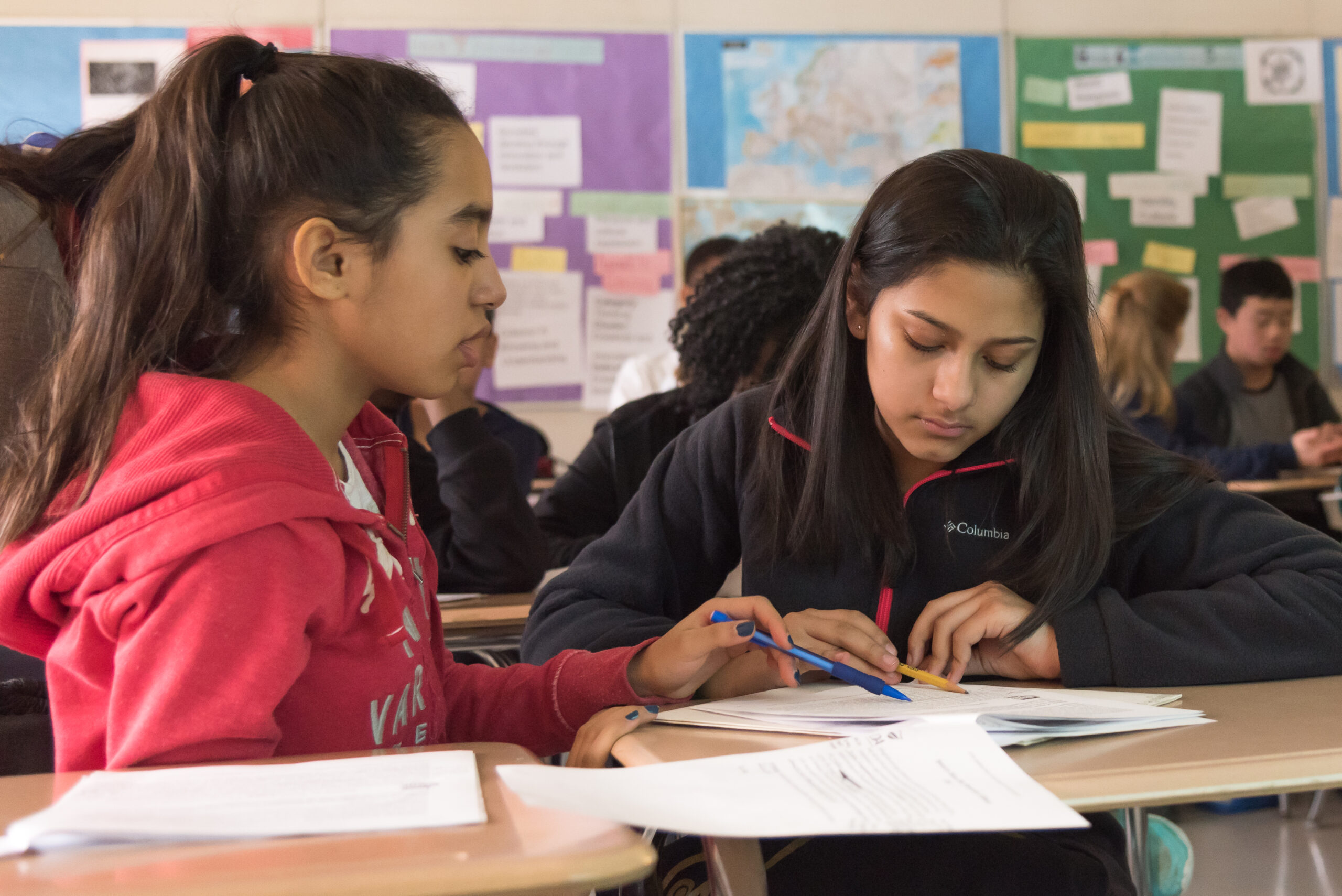Disciplinary Literacy Tools Structure a Process for Inquiry and Argument Writing
Student Talk
TALK
Regular opportunities to talk support students’ reading, thinking, and writing.
Read.Inquire.Write. is designed for students to learn through talking about the content and processing ideas collaboratively. The disciplinary literacy tools embedded within Read.Inquire.Write. investigations promote student talk while reading sources and then while corroborating sources and weighing evidence. Classrooms working with Read.Inquire.Write. tend to feature frequent transitions between individual, pair, small-group and whole-group work. This allows a wide range of students to consistently participate and engage with the content at high levels, both orally and in written form.
Frequent small group talk before whole class discussions is one of the most distinctive features of classrooms working with Read.Inquire.Write. In a survey of students, many said that it helps to talk with their group, because it allows them to hear what other people have to say, and to know that they’re not always right. Small groups help bilingual and multilingual learners as well. Teachers have noticed that if students are not socially or linguistically ready to participate in a whole group discussion, they have the option to “gently join” or “gently not join,” instead of the hard dichotomy of raising or not raising their hand in whole-group. Small group talk gains effectiveness when preceded by individual thinking and followed by whole-group discussions.
Brief and frequent small-group moments have many advantages for inquiry. They help break down complex disciplinary skills into smaller components with which all students can engage at a deep, nuanced level. In small groups, students get the chance to try out their ideas and refine their understandings in a safe environment, and benefit from their peers’ input.



